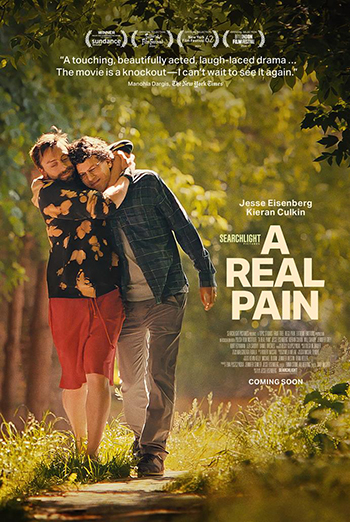The Karate Kid: Its Influence On Popular Culture And Martial Arts

Table of Contents
The Karate Kid's Cultural Impact
The impact of The Karate Kid extends far beyond its initial box office success. Its influence can be seen across various aspects of popular culture, solidifying its place as a true cultural phenomenon.
Impact on Film and Television
The Karate Kid's success spawned a franchise of sequels, remakes, and even a hugely popular Netflix series.
- Sequels and Remakes: The original film's success led to several sequels, each building upon the original's themes and characters. The 2010 remake, starring Jaden Smith, attempted to update the story for a new generation, demonstrating the film's continued relevance.
- Influence on Coming-of-Age Stories: The Karate Kid established a successful formula for coming-of-age stories involving underdog protagonists finding mentorship and overcoming adversity. This formula has been replicated countless times in film and television.
- The Cobra Kai Phenomenon: Arguably the most significant testament to The Karate Kid's enduring legacy is the Netflix series Cobra Kai. This show cleverly revisits the characters from the original film, exploring their lives decades later and exploring new themes while retaining the spirit of the original. It demonstrates the enduring power of the story and its characters.
- Cultural References and Memes: Elements from The Karate Kid, such as "wax on, wax off," have become ingrained in popular culture, frequently referenced in memes, television shows, and even everyday conversation.
The "Karate Kid" Phenomenon
The Karate Kid wasn't just a critical and commercial success; it became a cultural phenomenon.
- Box Office Triumph and Merchandise: The film's box office success led to a massive merchandising boom, with everything from toys and clothing to video games bearing the Karate Kid brand.
- Music and Fashion Influence: The film's soundtrack and even its fashion choices, particularly Daniel's iconic attire, subtly influenced popular trends.
- Enduring Presence in Popular Memory: Regular re-airings on television and streaming platforms continue to introduce new generations to the film, cementing its place in popular culture.
- Nostalgic Appeal and Fan Culture: The Karate Kid continues to resonate with audiences through its strong nostalgic appeal, generating a dedicated and active fan base that keeps the legacy alive.
The Karate Kid's Influence on Martial Arts
Beyond its cultural impact, The Karate Kid significantly influenced the world of martial arts, particularly karate.
Increased Interest in Karate
The film's release led to a noticeable surge in interest in karate.
- Enrollment Increase: While precise statistics are difficult to obtain, anecdotal evidence and reports from various karate schools suggest a significant increase in enrollment following the film's release.
- Demystifying Karate: The Karate Kid presented karate in an accessible way, showcasing its discipline and athleticism without overly emphasizing its violent aspects, thus making it more appealing to a wider audience.
- Accessibility for a New Generation: The film helped break down stereotypes surrounding martial arts, showing it as a path to self-improvement and personal growth rather than just a combat sport.
Portrayal of Karate and Martial Arts Ethics
The Karate Kid didn't just portray karate as a fighting style; it emphasized the ethical principles associated with it.
- Discipline, Respect, and Self-Control: The film highlights the importance of discipline, respect for oneself and others, and self-control, showcasing karate as a holistic practice rather than just a physical pursuit.
- Positive and Negative Depictions: While the film primarily portrays positive aspects of karate, the antagonistic Cobra Kai dojo illustrates the potential negative consequences of a lack of discipline and ethical training.
- Responsible Training Emphasis: The film underscores the importance of responsible and ethical training, emphasizing the potential for both positive personal growth and harm if proper guidance is absent.
- Key Values: The film showcases crucial values like patience, perseverance, respect, and self-belief – lessons applicable far beyond the dojo.
The "Miyagi-Do" Style
Mr. Miyagi's unique training methods, known as the "Miyagi-Do" style, captivated audiences and left a lasting impact.
- Blending Traditional Techniques with Life Lessons: Miyagi's training wasn't just about karate moves; it was about teaching life lessons through seemingly mundane tasks, like "wax on, wax off."
- Effectiveness and Realism: While stylized, the portrayal of Miyagi-Do effectively conveys the principles of effective karate training, including balance, coordination, and precision.
- Memorable Training Techniques: Techniques like "crane kick" and "wax on, wax off" became iconic and memorable, entering popular culture as representations of the film itself.
Conclusion: The Lasting Power of The Karate Kid
The Karate Kid remains a cultural touchstone for its significant impact on popular culture and its influence on the perception and practice of martial arts. Its lasting power is undeniable, evident in the ongoing cultural references, the resurgence of interest in karate, and the enduring popularity of Cobra Kai. The film's themes of mentorship, perseverance, and the triumph of the underdog continue to resonate with audiences of all ages. Revisit this cinematic classic, explore the world of karate, or share your own Karate Kid memories. The legacy of The Karate Kid continues to inspire, demonstrating the enduring power of a simple story with profound themes.

Featured Posts
-
 Focus On Pmi European Market Briefing At Midday
May 23, 2025
Focus On Pmi European Market Briefing At Midday
May 23, 2025 -
 Goroskopy I Predskazaniya Dlya Vsekh Znakov Zodiaka
May 23, 2025
Goroskopy I Predskazaniya Dlya Vsekh Znakov Zodiaka
May 23, 2025 -
 International Broadcast Grand Ole Opry Performs At Londons Royal Albert Hall
May 23, 2025
International Broadcast Grand Ole Opry Performs At Londons Royal Albert Hall
May 23, 2025 -
 A Real Pain Official Disney Release Date In April
May 23, 2025
A Real Pain Official Disney Release Date In April
May 23, 2025 -
 Today Show Walt Fraziers Championship Rings Surprise Celtics Fan Dylan Dreyer
May 23, 2025
Today Show Walt Fraziers Championship Rings Surprise Celtics Fan Dylan Dreyer
May 23, 2025
